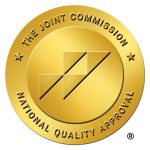Career Spotlight: Addictions Nurse
 According to the National Institutes of Health’s National Institute of Drug Abuse, researchers have determined that drug abuse and overdoses have increased during the pandemic. For an addictions nurse, this isn’t surprising. It’s an incredibly stressful time. And more stress results in more cravings for those struggling with addiction.
According to the National Institutes of Health’s National Institute of Drug Abuse, researchers have determined that drug abuse and overdoses have increased during the pandemic. For an addictions nurse, this isn’t surprising. It’s an incredibly stressful time. And more stress results in more cravings for those struggling with addiction.
Stephanie Hughes, MSN, APRN, works at Pinnacle Treatment Centers as the regional director of nursing. In addition, she also provides direct care in its residential treatment setting, specifically at Recovery Works in South Shore and Georgetown, Kentucky.
Hughes took time to answer our questions about being an addictions nurse.
How did you get interested in being an Advanced Nurse in the addiction treatment field? What drew you to it? How long have you been doing it?
My nursing career started in 1998. My first job was in a Behavioral Medicine Unit at King’s Daughters Medical Center in Ashland, Kentucky, where I cared for patients with substance use disorders. I learned how the disease of addiction affects the entire family unit as well as loved ones, and how addiction is unbiased toward socioeconomic status, level of education, or age. This disease affects people of all walks of life.
In 2002, I became the nurse manager of this unit. My leadership role at this medical center extended to the Pre-operative Cardiac Catherization/Intervention Unit. It was approximately two years later when I realized my love for behavioral medicine and returned to it. In 2008, I completed my Master’s in Nursing with an emphasis on leadership and education. This led me to serve as an adjunct clinical instructor at Ashland Community and Technical College, where I worked with RN students in their Psych rotation. I now have been a nurse for 23 years and the disease of addiction along with dual diagnosis (depression, anxiety, PTSD/trauma) continues to be my passion and calling. I continue to learn every day from colleagues and mentors, and, most of all, my patients.
Explain to me briefly what you do as an Advanced Nurse in addiction treatment. Did you have to get additional training/education to do it?
In 2014, I graduated from Frontier Nursing University in Versailles, Kentucky, with a post Master’s degree as a board-certified family nurse practitioner. I also am a buprenorphine waivered practitioner, which means I can prescribe one of the three FDA-approved medications used to treat opioid use disorder. To become waivered, you have to be a qualified practitioner, such as a nurse practitioner or clinical nurse specialist, and apply through and be approved by the Substance Abuse and Mental Health Services Administration (SAMHSA). It also helps to have practice experience in the different levels of care for substance-use disorders, from detox, residential, and partial hospitalization to intensive outpatient and outpatient opioid treatment programs. Having worked in the full continuum allows me to truly meet patients where they’re at and willing to accept care.
What types of people/clients do you serve?
Together with a specialized medical and clinical team, I serve adult men and women who suffer from substance use disorders and their families. Patients who seek treatment for addiction to drugs or alcohol are looking for the same thing any other patient is looking for—they want to be seen by qualified professionals who are engaged with them and they want to be treated with dignity and respect. It’s no different than in a hospital or other care setting; our patients appreciate and remember a friendly smile, a warm blanket, a hot meal, and their hygiene needs being met. As a nurse, I think it’s very important to remember that basic needs are just as important as passing medications and medical treatments. Many of our patients come to us lost or forgotten. Some are homeless, jobless, or estranged from their families due to their addiction. But they still deserve our care, and we help them get their lives back. The treatment we provide not only heals their brains and bodies, but gives them life skills, coping skills, and relapse prevention strategies. And we connect them to other resources in the community as well as our own alumni recovery network for support.
What do you like most about working as an Addictions Nurse?
I get to be the friendly face that greets patients during their first days of treatment. Some days I work to physically stabilize patients and treat the symptoms of detox, and others I just offer a calm, compassionate atmosphere and listen to my patients. Seeing the freedom of recovery through my patients is absolutely amazing. These individuals are some of the strongest people I have ever had the pleasure of meeting. The work they put in to their recovery is unfathomable to many.
What are your biggest challenges in this position? What are your greatest rewards in it?
The biggest challenge for me is having an up-close and personal view of the effects of this terrible disease. One exacerbation/relapse could very well result in death. The loss of so many lives is absolutely devastating.
The greatest reward for me is seeing patients who are working hard and making progress in their recovery—like seeing a patient who now has a relationship with their children and family. They may have gained employment and are able to live independently. I get to help people who will continue to work on their recovery and do amazing things. Many will stay in this field and go on to help others. It’s an amazing dynamic.
What advice would you give to someone considering this type of nursing work?
Nurses who care for people suffering from substance use disorder must empathize with our patients and families. When nurses are able to practice empathy, they are able to treat their patients as people, not diseases, and focus on a person-centered care approach.
Treatment is personalized for each patient. This is not cookie cutter treatment. Being a team player and having good communication is critical. Personalized treatment is delivered through a multi-disciplinary treatment team approach with the patient being the focal point. Many patients enter treatment confused, disoriented, and emotionally defeated. We must be the voice of our patients during these times. We as nurses have to have a strong passion for patient advocacy. This ensures we are always fighting for the very best care for our patients.
(This story originally appeared in Minority Nurse.)




